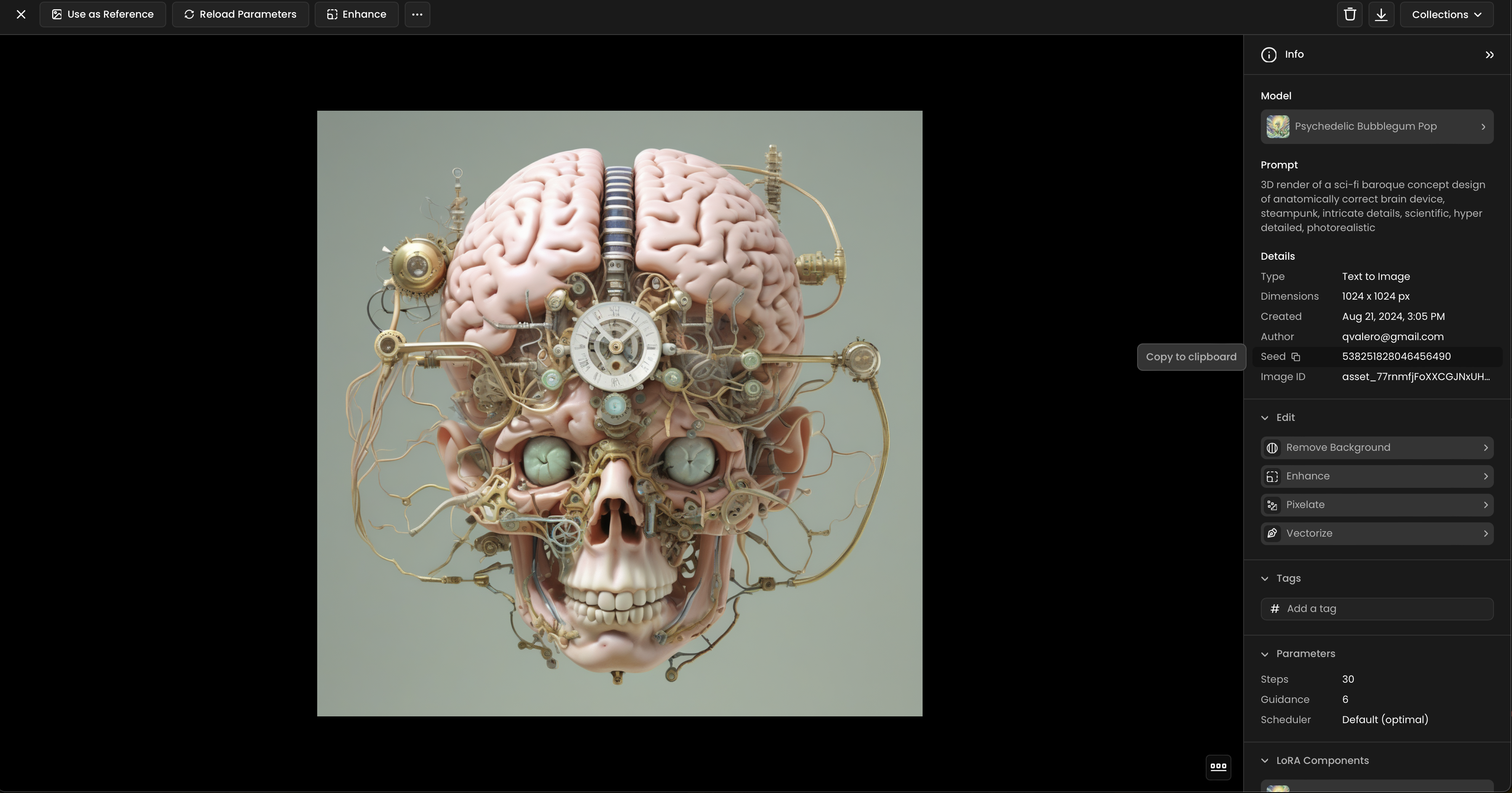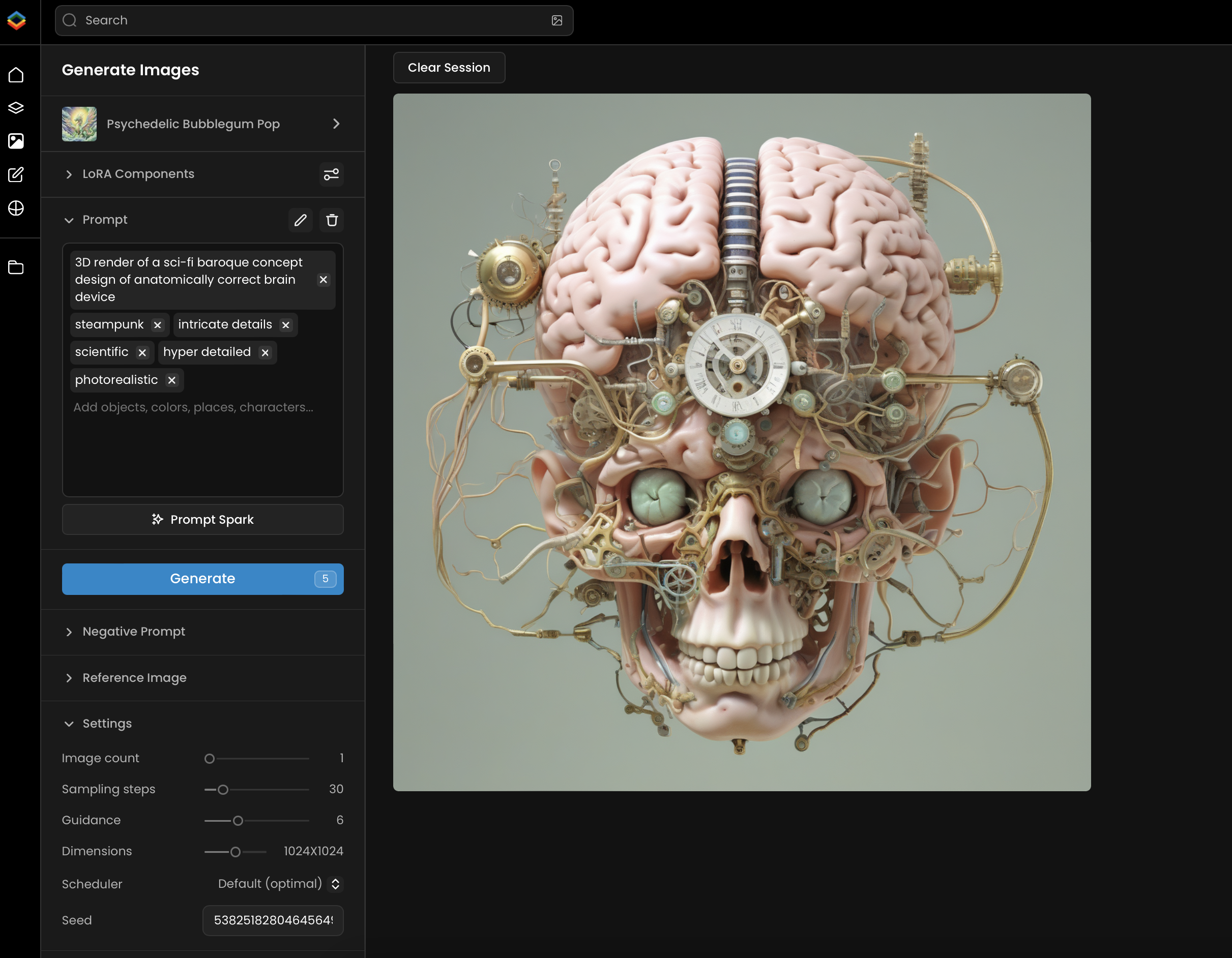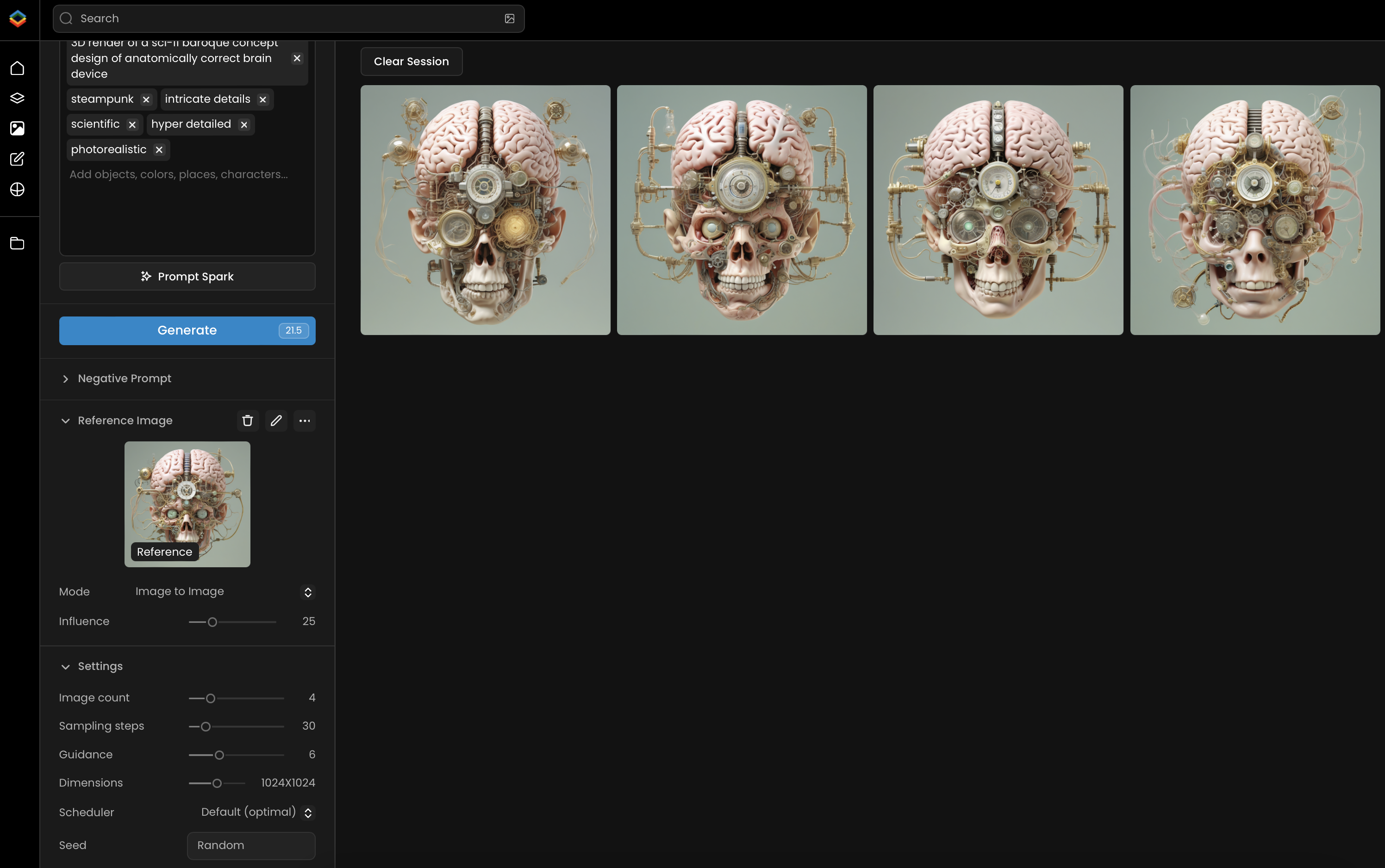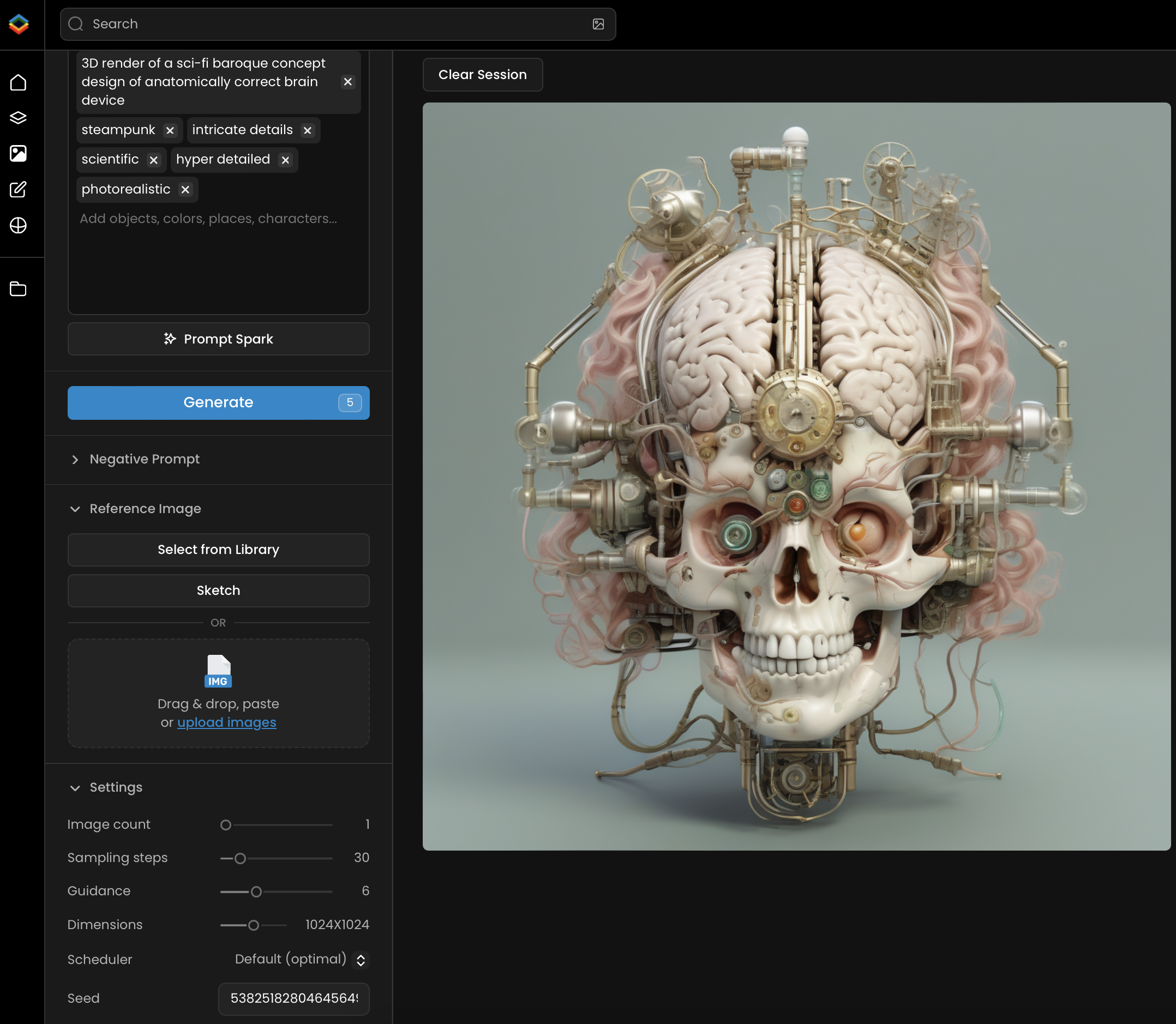Every time you generate an image in Scenario, the output is assigned a unique seed value. This seed plays a crucial role in reproducing and refining your image generations.
Once you've generated an image, you can view its seed value in the image information panel.

Example:
Seed Value: 538251828046456490
Model: Psychedelic Bubblegum Pop
Prompt: 3D render of a sci-fi baroque concept design of anatomically correct brain device, steampunk, intricate details, scientific, hyper detailed, photorealistic
To recreate an image exactly as it was originally generated:
Enter the seed value in the Seed field. Number of Image Count will be automatically set to 1
Use the exact same prompt as before.
By following these steps, the generated output will match the original image precisely.

Using the same seed value while making small changes to your prompt allows you to explore variations of your initial idea with precision. This approach is particularly useful for refining concepts and making targeted adjustments.
For tighter iterations of your output:
Keep the original seed value.
Use the generated image as a reference image.

This method ensures that new variations are closely guided by the original result, allowing for controlled experimentation.
Changing the Seed value by small increments while using the Reference Image will also create variations that are guided closely by the original result. Here seed we added +1 to the seed value:

Exploring with Different Models:
You can also restyle the output by keeping the original seed value but selecting a different model. This approach maintains the core elements of the original image while introducing stylistic changes. Here we changed the model for Realistic 3D Fantasy:
When using ControlNet, the seed value does not produce identical results to the original output due to the additional variables introduced by ControlNet. However, the seed value still provides a level of consistency, making it useful for generating similar variations.
Seed values are powerful tools in Scenario that allow you to reproduce, refine, and experiment with your image generations. By understanding how to use seed values effectively, you can guide your creative process with greater control and precision.
Was this helpful?

Quentin